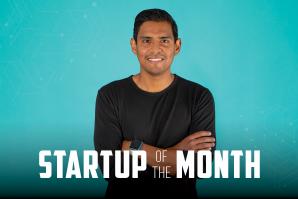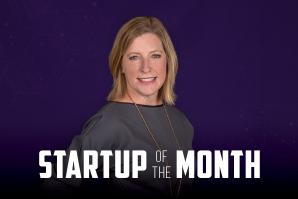Kidney disease causes more deaths than breast cancer and prostate cancer. The most popular way to treat kidney failure is with dialysis, where synthetic medical tubes in a patient’s arm or leg act as kidneys, removing waste and toxins from the blood. But these tubes — called arteriovenous grafts — cost a lot and often fail from clotting, vein collapse and infections.
VasoBio, a medical device company out of UC Davis, has identified a molecule to coat the surface of an AV graft. Once implanted in the patient, this “self-renewable” coating attracts the body’s own stem cells to grow on the graft. The body then sees the graft as living tissue, not a synthetic material, according to VasoBio co-founder, Aijun Wang, who is professor of surgery and biomedical engineering and vice chair for Translational Research, Innovation and Entrepreneurship at the UC Davis Department of Surgery.
“The body is always trying to heal, but sometimes it doesn’t have enough power to play against other factors,” Wang says. “This technology is educating the body on how to guide the good cells to do the right thing quicker.”
The VasoBio interdisciplinary team also includes co-founders Kit S. Lam, a professor in the department of biochemistry and molecular medicine, and Alyssa Panitch, a professor in the department of biomedical engineering. For the nearly half a million patients in the U.S. who need dialysis, this technology could be a breakthrough for keeping veins healthy and reducing health care costs, Wang says.
Finding the right molecule to make the surface of the tubing “biologically smart” wasn’t easy, Wang says. But they leveraged Lam’s existing research to identify compounds that might attract endothelial cells, which line all blood vessels. The molecule to coat the inside of the graft had to be sticky enough to attract endothelial cells without also pulling in undesirable cells. VasoBio plans to start with enhancing AV grafts, but Wang says the technology could go beyond dialysis to support other grafts to reduce blood clot formation and infection.
The startup has received support from UC Davis’ Venture Catalyst program. Bill Tucker, interim associate vice chancellor for Innovation and Technology Commercialization, who oversees Venture Catalyst, says medical technology advancements are essential to improve treatment for hundreds of thousands of U.S. patients who receive kidney dialysis. VasoBio may have identified a potential solution with its bioactive coating “in an effort to mimic the body’s own natural vascular system and thus create longer lasting grafts,” Tucker says, adding that they look forward to following the startup’s progress.
But there is no progress without hurdles. Right now, VasoBio’s main challenge is finding partnerships for manufacturing and regulatory expertise to help with organizing materials to submit to the FDA. In its early stages, the startup has received about $500,000 from the Kidney Innovation Accelerator (KidneyX), a public-private partnership between the US Department of Health and Human Services and the American Society of Nephrology.
KidneyX aims to create a pathway for medical innovations that improve the health and quality of life for people with kidney diseases. This includes efforts to catalyze and support development of a manufacturable artificial kidney to replace both dialysis and the need to wait for a human kidney donor, according to Dr. John Sedor, chair of the KidneyX steering committee.
The VasoBio team “is aiming to improve how to safely and efficiently access the bloodstream of a kidney patient, applying what they learned developing technologies for cancer patients,” Sedor says. “This technology, if successful, could improve today’s dialysis-based treatments and also accelerate other KidneyX efforts for wearable artificial kidneys such as a backpack based concept.”
VasoBio seeks about $2 million in an upcoming pre-seed round, which Wang says will help the startup move into the next phase of regulatory approvals and trials.
“We are actively looking into communicating with the FDA to approve this device to help more patients in the near future,” Wang says. “Within a couple years, we’re going to start clinical trials.”
–
Stay up to date on business in the Capital Region: Subscribe to the Comstock’s newsletter today.
Recommended For You

Startup of the Month: FarmX
E-commerce platform empowers farmers
Fairfield-based FarmX enables farmers to sell directly to grocery chains and restaurants via its e-commerce platform.

Startup of the Month: Yolo Robotics
Davis-based company aims to recycle space debris
Tech company Yolo Robotics aims to melt and reshape space debris into useful products while remaining in orbit.

Startup of the Month: Expert IEP
App optimizes education plans for neurodivergent students
Davis-based tech company Expert IEP developed an app to help parents of neurodivergent students optimize their academic, behavioral, occupational and speech goals.

Startup of the Month: INN>CHRG
Yolo County-based startup aims to eliminate range anxiety for electric vehicle drivers
INN>CHRG is developing an app that allows any private property (residential, business, etc.) with electricity to potentially become a charging location.

Startup of the Month: RevShopp
Platform shapes a better way to shop
Every body has a type. But clothing stores typically focus on sizes, which does a disservice to both retailers and customers, says Amy Wister, cofounder and CEO of RevShopp.




